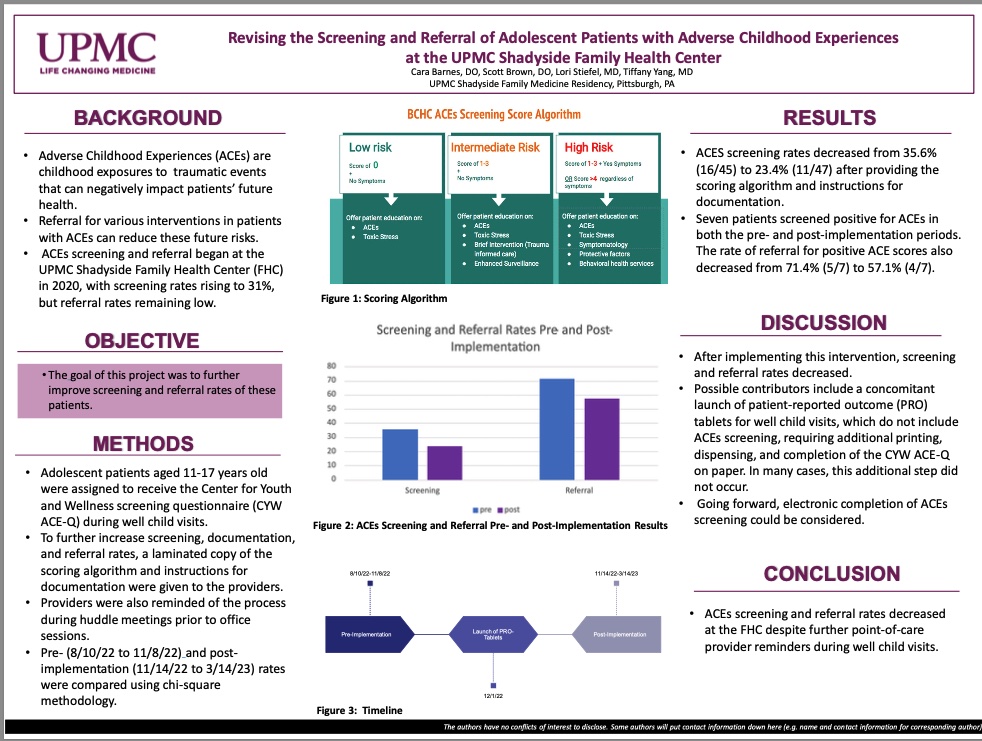Family Practice Physician, Superior Family Medicine-UPMC, Pittsburgh, Pennsylvania
Revising the Screening and Referral of Adolescent Patients with Adverse Childhood Experiences at the UPMC Shadyside Family Health Center
Authors:
Cara Barnes, DO; Scott Brown, DO; Lori Stiefel, MD; Tiffany Yang, MD
Background:
Adverse Childhood Experiences (ACEs) are childhood exposures to a variety of traumatic events, such as abuse, violence, and household dysfunction, that can negatively impact patients’ future health. Referral for various interventions in patients with ACEs can reduce these future risks. ACEs screening and referral began at the UPMC Shadyside Family Health Center (FHC) in 2020, with screening rates rising to 31%, but referral rates remaining low. The goal of this project was to further improve the screening and referral rates of these patients.
Methods:
Adolescent patients aged 11-17 years old were assigned to receive the Center for Youth and Wellness screening questionnaire (CYW ACE-Q) during well-child visits at the FHC, a Family Medicine residency clinic. To further increase screening, documentation, and referral rates, a laminated copy of the scoring algorithm and instructions for documentation were given to the providers. They were also reminded of the process during huddle meetings prior to office sessions. Pre- (8/10/22 to 11/8/22) and post-implementation (11/14/22 to 3/14/23) rates were assessed using chi-square methodology.
Results:
ACES screening rates decreased from 35.6% (16/45) to 23.4% (11/47) after providing the scoring algorithm and instructions for documentation. Seven patients screened positive for ACEs in both the pre-and post-implementation periods. The rate of referral for positive ACE scores also decreased from 71.4% (5/7) to 57.1% (4/7).
Discussion:
After implementing this intervention, screening and referral rates decreased at the FHC. Possible contributors include a concomitant launch of patient-reported outcome (PRO) tablets for well-child visits, which do not include ACEs screening at this time, requiring additional printing, dispensing, and completion of the CYW ACE-Q on paper. In many cases, this additional step did not occur. Going forward, electronic completion of ACEs screening could be considered.
Conclusion:
ACEs screening and referral rates decreased at the FHC despite further point-of-care provider reminders during well-child visits.

